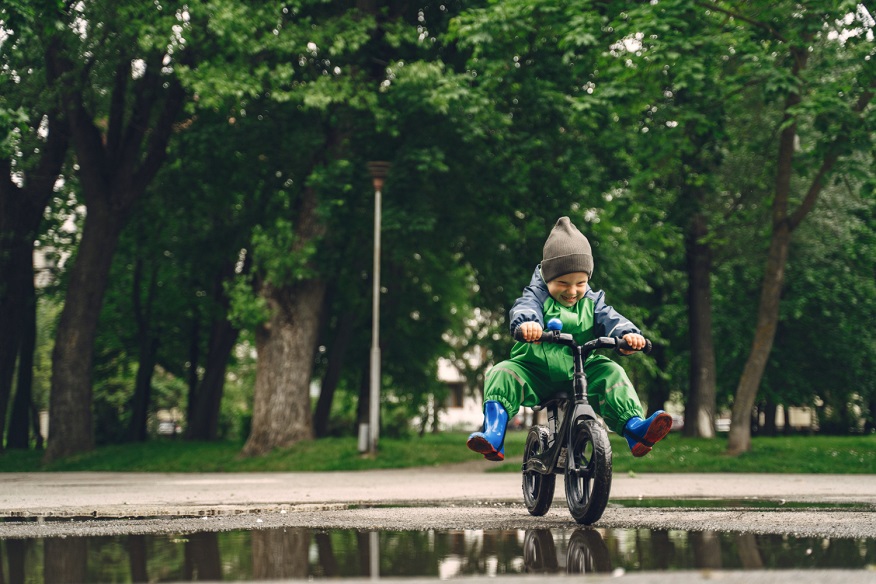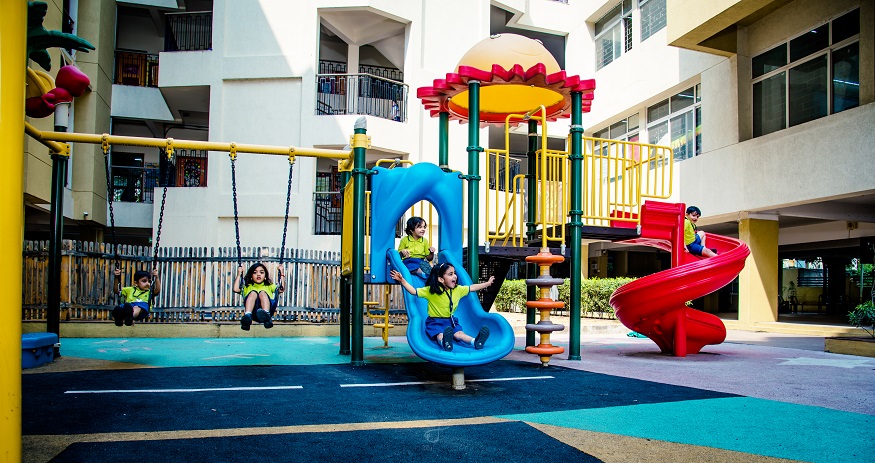On a beautiful morning, your kid is playing in the park. Suddenly he trips and falls to the ground, you run to lift him. But your child quickly climbs to his feet again and beams at you. You feel proud of him for being strong.
Next time he plays in the park without losing balance or tripping. This is a great positive sign and this doesn’t stop here. At home, he uses the utensils properly to eat and drink without spilling. Without any assistance, he can open containers and packages.
He can brush his teeth and hair, tie his shoelaces, dress and undress himself without help, he can hold a pencil or crayon properly and write or draw accurately, he can manipulate small objects like beads, Lego, and puzzles with ease and accuracy and much more.
You may wonder if he has any special powers to perform all these tasks independently without assistance at this small age or is it some magic of an energy drink, but you are wrong. The answer is your kid has good motor skills.
Your child’s ability to direct and plan his motions is referred to as motor skills. They are essential for performing tasks including walking, running, dancing, playing, writing, drawing, and utilising utensils. The need for motor skills activities for children should be made clear to every parent. So, let’s take a brief look into this, kids need two types of motor skills.
Gross Motor Skills:
Growing young minds require the capacity for larger muscular movements through gross motor skills that involve running, jumping, throwing, or climbing. These abilities enhance their bodily control while increasing coordination and balance over time.
With proficiency comes participation in sports and similar activities thereby fulfilling essential functions including daily tasks like sitting or standing while also achieving spiritual growth.
Significance of such improvement plays an essential role not only cognitively but also physically impacting factors like self-esteem, making social interaction reliably satisfying.
According to multiple studies, kids who have strong gross motor skills will benefit much in the long run. It enhances the likelihood that children will be inclined to prioritise engaging in regular exercise activities throughout their lifespan, diminishing known health risks linked with insufficient physical activity such as heart problems or obesity onset.
There is yet another benefit, developments within elementary cognitive functions linked closely with increased levels of movement, specifically improved concentration power, and sharper memory recall skills involved extensively during learning periods, both indispensable pillars underpinning academic success outcomes for students at all levels day-to-day.
Fine Motor Skills:
The capacity to move by using the little muscles in our hands and wrists is known as fine motor abilities. Many tasks that are related to school and work require fine motor abilities from people.
Most people execute these little movements without thinking since they are so natural to them. However, fine motor skills are difficult. They require the brain and muscles to work in unison.
The academic success of kids is something that most parents worry about, fine motor skills play a crucial role in the academic success of kids. Fine motor skills are important for writing, drawing, and other academic or work-related activities.
Day to day basic tasks of a human such as dressing, grooming, eating, using utensils and personal hygiene completely rely on fine motor skills.
In case of lack of fine motor skills, a child’s self-esteem may suffer, their academic achievement may be disturbed, and their play possibilities may be highly constrained if they are unable to execute these daily duties.
Importance Of Motor Skills:
Increase in power and coordination:
Kids develop strength, coordination, and balance when they participate in physical activities that challenge them to use their motor skills.
Boost of cognitive performance:
Motor skills development can potentially benefit cognitive performance. Children with higher motor skills usually do better in school and have better reasoning and problem-solving capabilities, based on studies.
Boost of self-esteem:
When kids can complete their tasks without their parent’s help, it boosts their self-esteem. This helps them feel more confident.
Foster social interaction:
Engaging in sports that require motor skills also gives kids the chance to interact with others and work as a team, which can help them develop essential social abilities.
Now, as a parent, you might be wondering: How can I help my child with motor skills development? What kind of motor skills activities will be beneficial to them? We have listed the activities to improve Gross and Fine motor skills. Please ensure the safety of the kids, before involving them in the activities.
Gross Motor Skills Activities:
Playing: Yes, you read it right, encourage your kids to keep aside the digital screens and play outdoors. It will enhance their leg muscles, coordination and endurance. Some simple ones like ball games, start with soft balls. Also playing tag or running races in the park.
Dancing and Jumping: Next time when your kids tap their feet to a piece of peppy music, dance along with them. Activities like jumping jacks can help them improve coordination, balance and cardiovascular fitness. Set up small hurdles to jump over.
Climbing and Crawling: To improve their balance, coordination, and overall gross motor abilities, kids can crawl, climb, leap, and sprint through the obstacle course.
Swimming: Swimming involves a lot of concentration, coordination and problem solving, in turn, promotes cognitive development in kids. Swimming can be an excellent form of physical activity for young children whose motor skills are still being built.
Animal Walks: Making kids walk like a bear, gorilla, tiger, or lion will help them be creative and also develop gross motor skills. As kids love to listen to stories, you can ask them to play the role of an animal they like.
Fine motor skills Activities:
- Drawing and colouring
- Playdough and clay
- Puzzles and building blocks
- Threading and lacing
- Cutting and pasting
- Playing with small toys
- Cooking and baking
Conclusion:
In short, motor skills development is crucial for children’s development because they support their physical, cognitive, and emotional growth and lay the groundwork for success in a variety of realms of life. At EuroSchool, we understand the importance of motor skills for your child.











